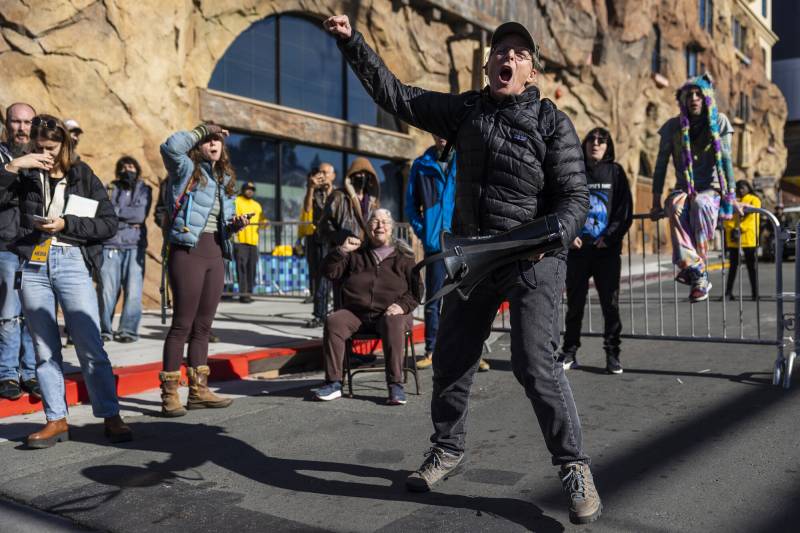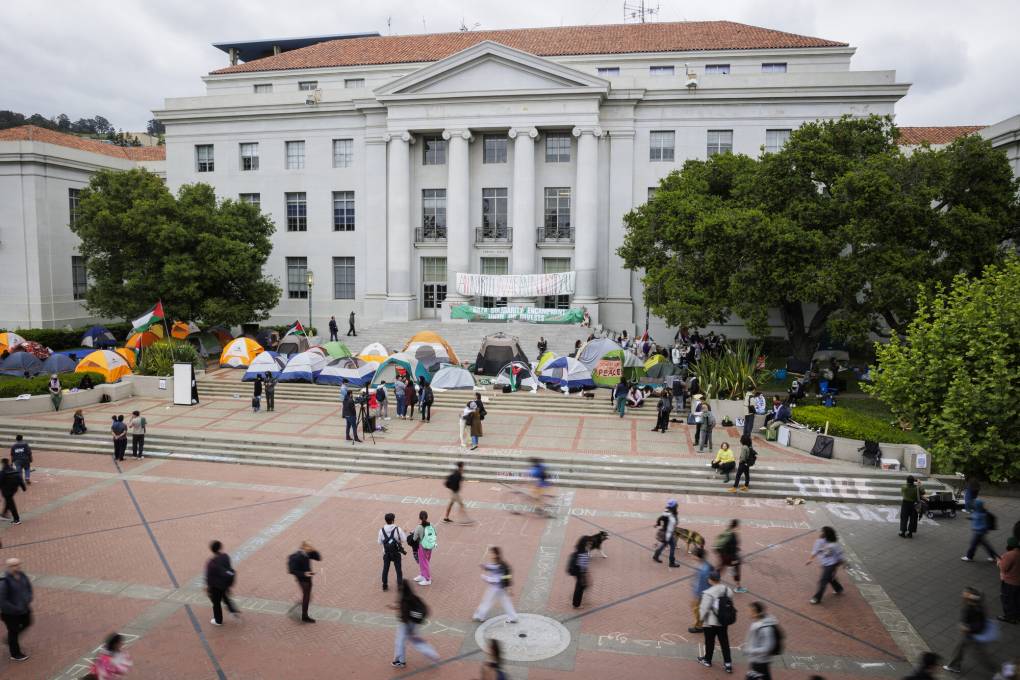The University of California academic workers’ union is demanding that administrators bargain with them over recently announced changes to campus protest policies.
In a directive last week, UC President Michael V. Drake instructed chancellors at all 10 UC campuses to compile all of their protest-related policies, which he said specifically should include bans on the blocking of walkways or doorways, unauthorized structures and masking to conceal one’s identity or intimidate others.
Officials with United Auto Workers Local 4811, representing some 48,000 academic workers, said the policies would limit their ability to exercise their free speech rights within the workplace.


